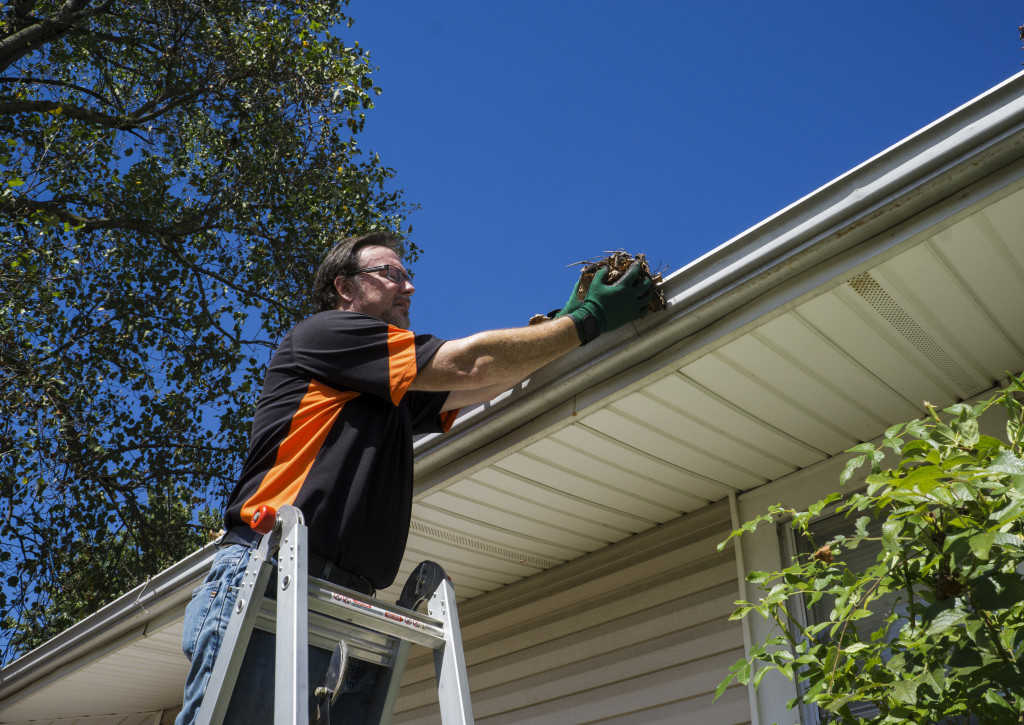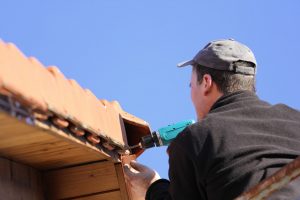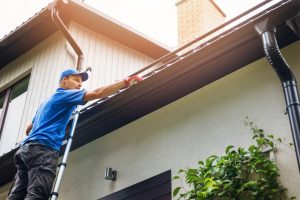Winter is coming, and with it, the cold weather. The low temperature can damage your home if you don’t take the proper precautions. Alongside rain, snow, and ice, the cold can cause your home to deteriorate.
One of the best ways to prepare your home for winter is to make sure the exterior is in good condition. This will help keep your family safe and warm throughout the season. You can do a few things to make sure your home’s exterior is ready for winter. Read on for some tips.
1. Check your gutters and downspouts.
Rain and snow can cause your gutters and downspouts to become clogged. It can lead to water damage on your roof and siding. Loose gutters can also fall and injure someone. Strong winds can loosen screws and nails that hold the gutters in place.
Check your gutters and downspouts regularly and clean them out if necessary. To do this, you’ll need a ladder. Climb up and remove any leaves, twigs, or other accumulated debris. You can also use a garden hose to flush out the gutters and downspouts. Manually remove any remaining residue.
2. Inspect your roof.
Your roof takes the brunt of the damage from winter weather. Shingles can become loose and fall off, exposing your home to the elements. Ice dams can form, causing water to leak into your home.
Inspect your roof regularly, and make sure to repair any damage as soon as possible. If you see any missing or damaged shingles, replace them. You can also add a layer of roofing felt to help protect your shingles from the elements. But if you don’t feel comfortable doing this yourself, hire a professional.
Professional roofers can also help you prevent ice dams from forming. They can do this by installing heat cables along the edges of your roof. These cables will melt the snow and ice, preventing dams from forming.

3. Trim trees and bushes.
Trees and bushes can damage your home in a few ways. Strong winds can cause branches to break and fall, damaging your roof or windows. Overgrown trees and bushes can also block your gutters and downspouts, causing them to become clogged.
To prevent this, trim any trees or bushes close to your home. Cut back any branches that are hanging over your roof or windows. It would be best to branches that are blocking your gutters and downspouts.
While at it, your garden is also susceptible to cold weather. Make sure to cover any delicate plants or flowers. This will protect them from the frost and snow. You can hire landscaping services to help you prepare your garden for winter.
4. Seal cracks and holes.
Cold air, water, and pests can enter your home through cracks and holes in the exterior. These include gaps around doors and windows, cracks in the foundation, and openings for utilities. Like mice and rats, some pests are looking for a warm place to nest during the winter. They can cause damage to your home as they try to get inside.
To prevent this, seal any cracks and holes in your home’s exterior. You can use caulk or weatherstripping to do this. You may need to use expanding foam insulation for more significant cracks and holes. You can also use a brush or roll-on sealant.
You may need to hire a professional to repair them for foundation cracks. But you can seal more minor cracks yourself with masonry sealant.
5. Protect your pipes.
Frozen pipes can burst and cause extensive water damage to your home. They can also be expensive to repair. To prevent this, insulate any exposed pipes. You can use pipe insulation or foam tape to do this.
It would be best to disconnect any hoses from your outdoor faucets. This will prevent them from freezing and bursting. Keep your indoor thermostat at a constant temperature, even when you’re not home to prevent your pipes from freezing.
6. Inspect your chimney.
Finally, if you have a fireplace, make sure to inspect your chimney. Creosote, a byproduct of burning wood, can build up in your chimney and cause a fire. So, it’s essential to have your chimney cleaned regularly. It would help if you also looked for any cracks or damage. Repair any damage as soon as possible to prevent further problems.
If you don’t feel comfortable doing this yourself, hire a professional. They have the experience and knowledge to inspect and clean your chimney properly.
Winter can be a harsh season for your home. The cold weather can damage your roof, pipes, and chimney. It can also cause pests to try to get into your home. But by taking some preventative measures, you can protect your home from the winter weather. Inspect your roof regularly, trim trees and bushes, seal cracks and holes, protect your pipes, and inspect your chimney. Taking these steps will help keep your home in tip-top shape all winter long.






